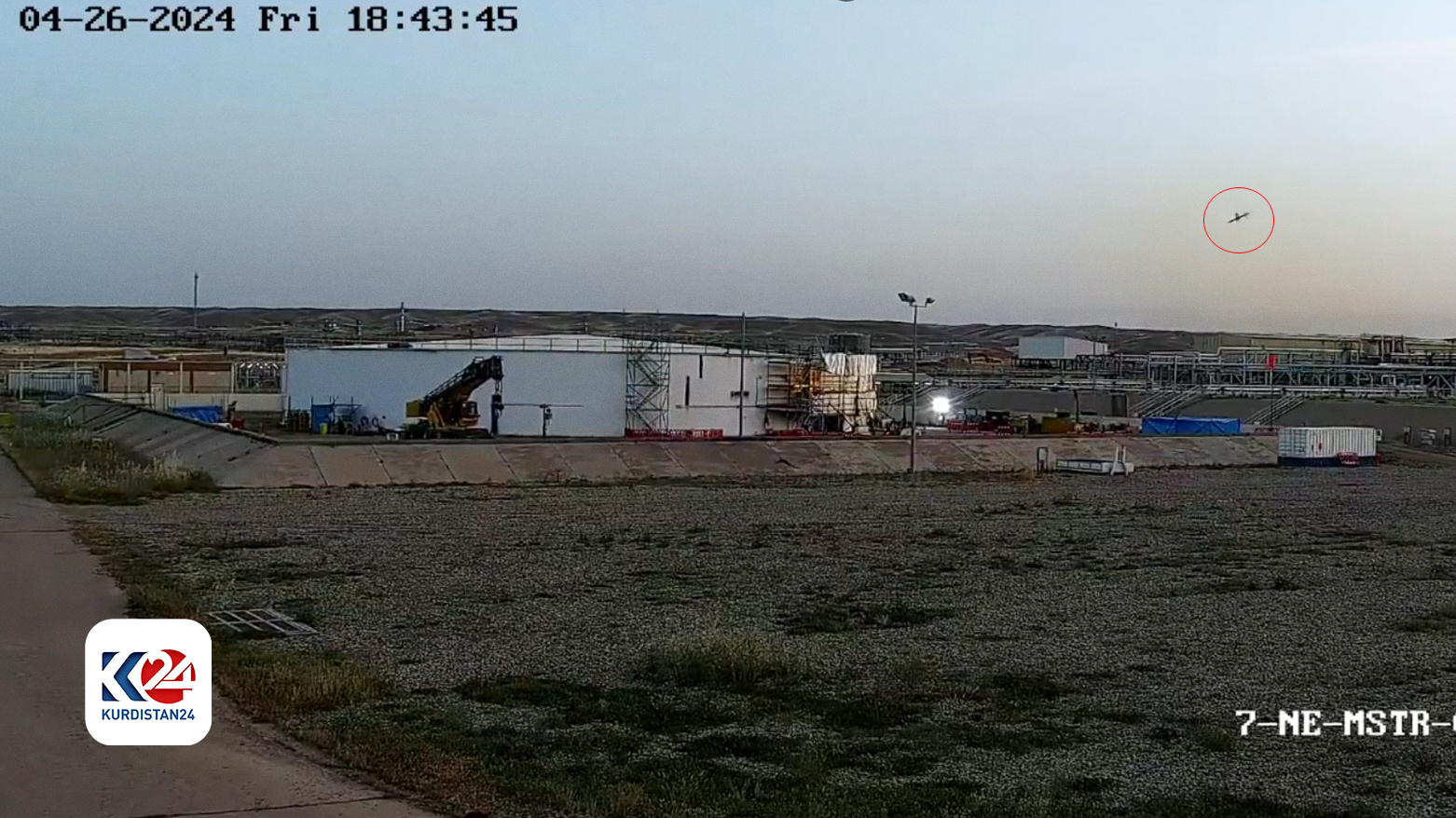Security sources confirm attack on Khor Mor gas field from within Iraq

ERBIL (Kurdistan24) – Military and security sources have confirmed an attack on the Khor Mor gas field originating from within Iraq, particularly in the security vacuum areas situated between the Kurdistan Region and Iraq in Salahaddin and Diyala provinces.
This revelation underscores the persistent security challenges faced by the Kurdistan Region stemming from the presence of various armed groups operating in the region.
The security vacuum zone between the Kurdistan Region and Iraq has emerged as a significant concern, serving as a base for multiple armed groups, each aligned with distinct movements and personalities.
All indications suggest that the recent attack on the Khor Mor gas field was launched from Iraqi territory, exploiting the security gaps between the two regions, particularly in the Salahaddin to Diyala belt.
Reports indicate that several armed groups affiliated with the Popular Mobilization Forces (PMF) or Hashd al-Shaabi, receiving both salaries and weapons from them, exert control over the security vacuum zone.
These groups include: the Badr battalions under the leadership of Hadi al-Amiri, deputy head of Hashd al-Shaabi, and the Sayyid al-Shuhada battalion and Asa'ib Ahl al-Haq battalion led by Qais Al-Khazali, leader of the Asaib Ahl al-Haq faction in the Iran-backed Hashd al-Shaabi. Additionally, the Turkmen Hashd, operating in Turkmen areas such as Amirli, parts of Tuz, and southern Kirkuk, are known to carry out sporadic attacks.
Despite the decision made in 2017 to establish a joint 20th Brigade between the Peshmerga and the Iraqi army to address the security gaps, the Iraqi government has failed to allocate the necessary financial resources to sustain this initiative.
Comprising around 3,000 Peshmerga personnel, the 20th Brigade was tasked with securing the region and mitigating threats to both the Kurdistan Region and Iraq.
However, the absence of adequate funding has hindered its effectiveness in addressing the security challenges posed by the armed groups operating in the area.
The attack on the Khor Mor gas field serves as a stark reminder of the urgent need for concerted efforts to enhance security cooperation between the Kurdistan Region and Iraq, effectively addressing the underlying issues contributing to the prevailing security vacuum and ensuring the safety and stability of the region.
Tragically, the attack claimed the lives of four Yemeni workers, with two others sustaining injuries. The casualties occurred at the Khor Mor gas field, located in the Qadir Karam sub-district of Chamchamal district within Sulaimani province.
Read More: Drone strikes gas field in Sulaimani province
Operated by the UAE's Dana Gas Company, the Khor Mor gas field serves as a vital source, providing 67% of the Kurdistan Region's electricity supply.
In response to the attack, both the US State Department and the United Nations Special Envoy (UNAMI) have denounced the violence and urged a thorough investigation to identify and apprehend the perpetrators.
Read More: U.S. ‘Strongly Condemns’ Drone Attack on Khor Mor Gas Field
Read More: UNAMI condemns attack on Khor Mor gas field, calls for justice
Kurdistan Region Prime Minister Masrour Barzani on Friday in a post on X condemned the Khor Mor gas field attack and sent his condolences to the four civilians killed.
“I strongly condemn tonight’s terror attack on Khor Mor. My thoughts and condolences are with the four civilians killed, and I wish the wounded a swift recovery. I have instructed the Ministry of Health to provide all necessary support,” Prime Minister Barzani said.
Read More: PM Barzani condemns Khor Mor gas field attack
The international community's condemnation underscores the gravity of the incident and the imperative of holding accountable those responsible for such brazen acts of aggression.
The British ambassador to Iraq, Stephen Hitchen, has vehemently denounced the assault on the Khor Mor gas field, characterizing it as a deplorable attempt to leverage violence for political ends.
Read More: British Ambassador condemns Khor Mor attack as politically motivated violence
The European Union (EU) Ambassador to Iraq, Thomas Seiler, reiterated the EU's unwavering support for the Kurdistan Region and Iraq while condemning the recent assault on the Khor Mor gas field, emphasizing its impact on civilians.
Read More: EU Ambassador condemns attack on Khor Mor field, reaffirms support for Kurdistan Region, Iraq
The Yemen Ministry of Foreign Affairs on Saturday in a statement condemned Friday's drone strike on the Khor Mor gas field that resulted in the killing of four Yemeni workers.
The statement added that the Yemeni embassy in Baghdad is in constant contact with both the Iraqi and Kurdistan Regional Governments for the latest updates about the strike.
Read More: Yemen condemns Khor Mor gas field attack
The Ministry of Foreign Affairs of the UAE on Saturday in a statement condemned Friday's drone strike on the Khor Mor gas field that resulted in the killing of four Yemeni workers.
“The UAE has strongly condemned the drone terror attack that targeted the Khor Mor gas field in Iraq’s Kurdistan region, which has resulted in a number of deaths of innocent people from the Republic of Yemen,” the statement read.
Read More: UAE ‘expresses its strong condemnation’ of Khor Mor gas field attack
